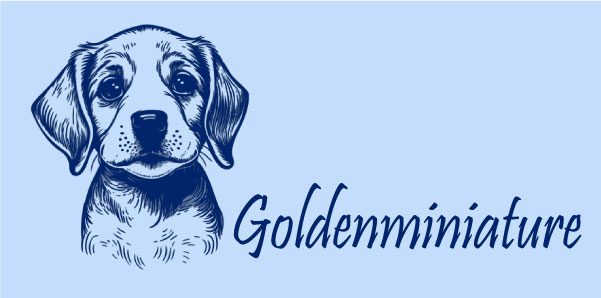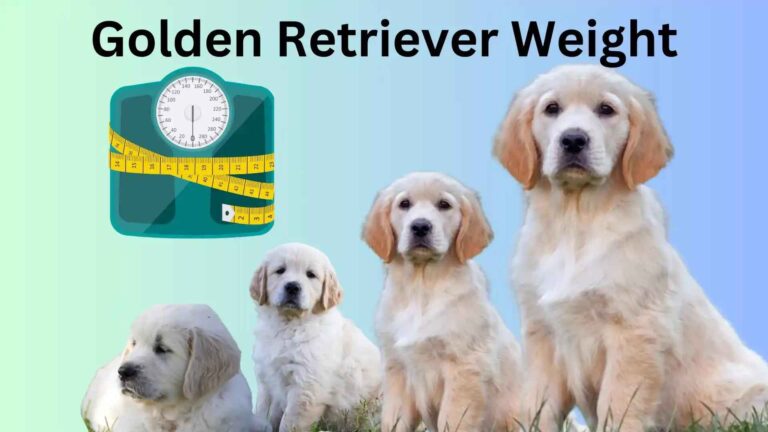5 Best Dog Food For Golden Retrievers And Mini Goldens:
As a pet owner, finding the best dog food for golden retrievers including Mini goldens is crucial for their health and happiness. That’s why discovering the perfect mini golden retriever food is somehow time-consuming and tricky. However, with multiple options available, navigating through the choices can be overwhelming.
The problem arises when standard dog foods don’t cater to the specific needs of smaller breeds like mini golden retrievers. These dogs require a diet tailored to their size, metabolism, and potential health concerns. That’s where specialized mini golden retriever food comes in, offering a solution to meet their unique nutritional requirements.
With specially formulated mini golden retriever food, I can ensure that my furry friend receives the right balance of nutrients to support their overall well-being. From optimal growth and development to maintaining a healthy weight, this tailored diet addresses the specific needs of my beloved mini golden retriever, giving me peace of mind as a responsible pet owner.
Best Dog Food For Golden Retrievers In The Market:
When it comes to find the best dog food for my Mini Golden Retriever, several important factors must be considered. As a proud owner of a Golden Retriever, I understand the significance of providing high-quality nutrition to support their overall health and well-being.
Nutritional Needs of Golden Retrievers

Golden Retrievers are active and energetic dogs that require a balanced diet to maintain their health. They are prone to certain health problems such as obesity, hip dysplasia, and skin allergies. Therefore, choosing a dog food that meets their specific nutritional needs is crucial.
Protein-Rich Diet
Golden Retrievers are known for their muscular build and high energy levels. A diet rich in high-quality proteins is essential for supporting muscle development and overall energy requirements. Look for dog foods that list a quality source of animal protein, such as chicken, turkey, or fish, as the first ingredient.
Balanced Diet
In addition to proteins, Mini Golden Retrievers also need a balanced diet that includes carbohydrates, fats, vitamins, and minerals. Carbohydrates provide energy, while fats support their skin and coat health. Vitamins and minerals are crucial in maintaining their overall health and immunity.
Joint Health Support
Due to their size and breed predisposition, Golden Retrievers are prone to joint issues like hip dysplasia. Choosing a dog food that contains glucosamine and chondroitin sulfate can help support joint health and mobility in Golden Retrievers.
Avoid Fillers and By-Products
When selecting dog food for your Golden Retriever, avoiding products containing fillers, artificial preservatives, colors, or by-products is important. Opt for natural and wholesome ingredients that provide essential nutrients without unnecessary additives.
Our Top Picks For The Best Dog Foods:

In choosing the best dog foods for your furry friend, there are several factors to consider, such as the quality of ingredients, nutritional value, and specific dietary needs. Here are my top picks for the best dog foods:
Blue Buffalo Wilderness Grain-Free Chicken

Blue Buffalo Wilderness Grain-Free Chicken is popular among dog owners looking for a high-quality, grain-free option for their pets. This formula features real chicken as the first ingredient, providing a good source of protein for your dog. It is also free from artificial preservatives, colors, and flavors, making it a healthier choice for your canine companion.
American Journey Large Breed Chicken And Sweet Potato

American Journey Large Breed Chicken And Sweet Potato is another excellent option for large breed dogs. This formula is specifically designed to support the unique nutritional needs of larger dogs, with added glucosamine and chondroitin for joint health. The inclusion of sweet potatoes provides a good source of carbohydrates for energy, making it a well-rounded choice for your pet.
Iams Proactive Health Large Breed

Iams Proactive Health Large Breed is a trusted brand known for its commitment to providing balanced nutrition for dogs. This formula is tailored to meet the needs of large breed dogs, with real chicken as the main ingredient. It also contains essential nutrients such as omega-3 fatty acids and antioxidants to support overall health and well-being.
Holistic Select Senior Health

Holistic Select Senior Health is an ideal choice for senior dogs who may have specific dietary requirements. This formula is crafted with senior dogs in mind, featuring easily digestible proteins and a blend of prebiotics and probiotics to support digestive health. It also contains a unique blend of natural fibers to promote healthy digestion in older dogs.
Halo Holistic Chicken Recipe Large Breed

Halo Holistic Chicken Recipe Large Breed is another top pick for large breed dogs due to its high-quality ingredients and holistic approach to nutrition. This formula features real chicken as the first ingredient and is free from artificial additives. It also includes whole grains, essential vitamins, and minerals to support your dog’s overall health and vitality.
Mini Golden Retriever Food Chart
| Weight (lbs) | Daily Food Intake (cups) |
| 25-30 | 2.5 – 3 |
| 31-40 | 3 – 4 |
| 41-50 | 4 – 5 |
| 51-60 | 5 – 6 |
| 61-70 | 6 – 7 |
| 71-80 | 7 – 8 |
| Over 80 | 8 or more |
Golden Retriever Feeding Chart By Age
| Age | Amount of Food per Day (cups) |
| 2-3 months | 2-3 |
| 4-6 months | 3-5 |
| 7-12 months | 5-8 |
| 1-2 years | 6-10 |
| 3-5 years | 4-7 |
| 6-10 years | 4-6 |
| 11+ years | 3-5 |
Dog Food For;
When choosing the best dog food for various specific needs, it is crucial to consider the nutritional requirements of each category.
Puppy
Puppies have different nutritional needs than adult dogs as they are in a crucial stage of growth and development. Look for puppy formulas specifically designed to support their growth with higher protein and fat content. Brands like Royal Canin, Hill’s Science Diet, and Purina Pro Plan offer excellent options for puppy food.
For Sensitive Stomachs
Dogs with sensitive stomachs require a diet that is easy to digest and gentle on their digestive system. Opt for dog foods free from common allergens like wheat, soy, and corn. Some top choices for dogs with sensitive stomachs include Blue Buffalo Basics, Wellness Simple Limited Ingredient Diet, and Natural Balance Limited Ingredient Diets.
For Weight Loss
If your dog needs to lose weight, it’s essential to choose a food that is lower in calories but still provides all the necessary nutrients. Look for weight management formulas high in protein to help maintain muscle mass while reducing fat content. Some recommended weight loss dog food brands are Hill’s Prescription Diet Metabolic Weight Management, Purina Pro Plan Weight Management, and Wellness Core Reduced Fat.
For 6 Months Food
At 6 months of age, puppies are still growing rapidly but transitioning into adolescence. Choose a high-quality puppy formula that supports their growth and mental wellness while providing the right balance of nutrients. Brands like Orijen Puppy Large, Taste of the Wild High Prairie Puppy Formula, and Eukanuba Puppy Growth offer great options for 6-month-old puppies.
For 2 Months
At 2 months old, puppies are very young and require a diet that is easy to digest and packed with essential nutrients. Look for puppy formulas that are formulated specifically for young puppies’ needs. Some good choices for 2-month-old puppies include Blue Buffalo Life Protection Formula Puppy, Merrick Grain-Free Puppy Plate Recipe, and Nutro Wholesome Essentials Puppy.
For 12 Weeks
At 12 weeks old, puppies are still very young and need a diet that supports their growth and development. Choose a puppy formula rich in protein and essential nutrients to help them thrive. Recommended options for 12-week-old puppies include Wellness Complete Health Puppy Formula, Taste of the Wild Pacific Stream Puppy Formula, and Diamond Naturals Small Breed Puppy Formula.
Mini Golden Retriever Food Menu
| Life Stage | Wet Food (cups per day) | Dry Food (cups per day) |
| Puppy (up to 12 weeks) | 1-1.5 | 1/3-1/2 |
| Puppy (3-6 months) | 2-3 | 3/4-1 |
| Puppy (6-12 months) | 3-4 | 1.5-2 |
| Adult (1-7 years) | 2-3 | 1.5-2.5 |
| Senior (8+ years) | 1.5-2 | 1-2 |
How Much Should You Feed A Golden Retriever Puppy?
The amount of food you should feed a Golden Retriever puppy depends on factors such as age, weight and height, activity level, and the specific instructions provided by the puppy food manufacturer. As a general guideline, Golden Retriever puppies typically require 1 to 1.5 cups of high-quality puppy food per day, divided into multiple meals.
Monitoring your puppy’s body condition and adjusting their food intake accordingly is important. Avoid overfeeding to prevent obesity and related health issues. Always provide fresh water for your puppy to stay hydrated throughout the day.
What Should You Feed Golden Retriever Puppies?
Golden Retriever puppies should be fed high-quality food specifically formulated for large breed puppies. Look for puppy food that contains essential nutrients such as protein, fat, carbohydrates, vitamins, and minerals. Choosing a puppy food that lists meat as the first ingredient and does not contain artificial additives or fillers is recommended.
When selecting a puppy food for your Golden Retriever, consider their age, size, activity level, and any specific dietary requirements. Consult with your veterinarian to determine the best food for your Golden Retriever puppy based on their needs.
How Much Should You Feed A Golden Retriever Adult Dog?
When feeding a Golden Retriever adult dog, the food they need will depend on their age, weight, activity level, metabolism, and overall health. Adult Golden Retrievers generally require 2-3 cups of high-quality dog food daily, divided into two meals.
Monitor your adult Golden Retriever’s body condition and adjust their food intake to maintain a healthy weight. Avoid feeding them table scraps or excessive treats, leading to weight gain and other health issues.
Remember to consult your veterinarian for personalized recommendations on feeding your Golden Retriever puppy or adult dog to ensure they receive the proper nutrition for their age and stage of life.
Golden Retriever Food Amount Per Day
Regarding the amount of food a Golden Retriever should consume daily, it is essential to consider factors such as age, weight, activity level, and overall health. On average, an adult Golden Retriever typically requires around 2-3 cups of high-quality dry dog food per day, divided into two meals. Puppies may need more frequent daily feeding to support their growth and development.
Golden Retriever Food Bowl Size
Selecting the right food bowl size for your Golden Retriever is crucial to ensure they can comfortably eat without issues. A medium to large-sized bowl with around 4-8 cups is generally suitable for adult Golden Retrievers. Smaller bowls that can hold 1-2 cups of food may be more appropriate for puppies to prevent overfeeding.
Golden Retriever Food Cost
The cost of feeding a Golden Retriever can vary depending on the brand and quality of the dog food chosen. High-quality dog food formulated specifically for large breeds like Golden Retrievers may cost an average of between $50 to $100 per month. It is important to prioritize nutrition and choose a balanced diet that meets your dog’s dietary requirements while considering your budget.
Golden Retriever Homemade Food Options
When it comes to feeding my Golden Retriever, homemade food is undoubtedly a great option to ensure he receives a balanced and nutritious diet.
Benefits of Homemade Food for Golden Retrievers
Feeding your Golden Retriever homemade food offers several benefits. Firstly, it gives you full control over the ingredients, ensuring your dog receives high-quality and fresh nutrients. Also, homemade meals can be tailored to your dog’s preferences and dietary requirements, making it easier to address allergies or sensitivities.
Essential Nutrients for Golden Retrievers
When preparing homemade food for your Golden Retriever, including all the essential nutrients that support his overall health and well-being is crucial. These nutrients include:
- Proteins: Essential for muscle development and overall body function.
- Carbohydrates: Provide energy for daily activities.
- Healthy Fats: Support skin and coat health.
- Vitamins and Minerals Play a vital role in various bodily functions.
Homemade Food Options for Golden Retrievers
There are several homemade food options that you can consider for your Golden Retriever:
- Protein Sources: Include lean meats such as chicken, turkey, or beef in your dog’s diet. Make sure the meat is cooked thoroughly to avoid any health risks.
- Vegetables: Incorporate a variety of vegetables like carrots, peas, and sweet potatoes to provide essential vitamins and minerals.
- Grains: Brown rice or quinoa can serve as a healthy source of carbohydrates for your furry friend.
- Fruits: Offer fruits like apples or blueberries as occasional treats, as they contain beneficial antioxidants.
Homemade Food Preparation Tips
When preparing homemade food for your Golden Retriever, keep the following tips in mind:
- Consult your veterinarian to ensure the homemade diet meets your dog’s nutritional needs.
- Avoid using ingredients that are toxic to dogs, such as onions, garlic, grapes, or chocolate.
- Maintain proper portion control to prevent obesity or nutrient deficiencies.
Following these guidelines and preparing balanced homemade meals for your Golden Retriever can contribute to his overall health and happiness.
Best Supplements For Dogs
Regarding supplements for dogs, it’s important to know that they can provide numerous health benefits when used correctly. Here are some of the best supplements for dogs that are backed by scientific research and widely recognized by veterinarians:
Omega-3 fatty acids
These essential fats have numerous health benefits for dogs, including improving skin and coat health, reducing inflammation, and supporting brain and eye development in puppies. Omega-3 fatty acids can be found in fish oil supplements or foods like salmon and sardines.
Glucosamine and chondroitin
These supplements are often used to support joint health in dogs, particularly those with arthritis or hip dysplasia. They work by promoting the production of cartilage, which acts as a cushion between joints.
Probiotics
Probiotics are beneficial bacteria that live in the gut and help support digestive health. They can be especially helpful for dogs with digestive issues like diarrhea or constipation.
Antioxidants
Antioxidants like vitamins C and E can help protect cells from damage caused by free radicals, which are unstable molecules that can contribute to aging and disease. Antioxidants can be found in a variety of fruits and vegetables, as well as in supplements.
Multivitamins
A good quality multivitamin can help ensure your dog gets all the essential nutrients they need for optimal health. However, talking to your veterinarian before starting your dog on a multivitamin is important, as too much of certain nutrients can be harmful.
Special Considerations
Last but not least, when choosing the right food for your golden retriever, several special considerations should be considered to ensure their health and well-being.
Age and Life Stage
One of the most important considerations when choosing food for your golden retriever is their age and life stage. Puppies, adult dogs, and senior dogs all have different nutritional requirements. Puppies need a diet that supports their growth and development, while adult dogs require a balanced diet to maintain their energy levels and overall health. Senior dogs may need a diet that supports joint health and helps manage weight.
Health Conditions
If your golden retriever has any underlying health conditions, such as allergies, digestive issues, or joint problems, you may need to choose a specialized diet that addresses these concerns. Some dogs may require a grain-free or limited-ingredient diet, while others may benefit from a diet rich in omega-3 fatty acids for joint support.
Activity Level
Consider your golden retriever’s activity level when selecting their food. Active dogs may require a higher protein content to support their energy needs, while less active dogs may benefit from a lower-calorie formula to prevent weight gain.
Ingredients
It’s essential to read the ingredients list on the dog food packaging carefully. Look for high-quality protein sources like chicken, beef, or fish as the first ingredient. Avoid foods that contain fillers, by-products, artificial colours, flavours, or preservatives.
Size of Kibble
Golden retrievers are known for their love of food and can be prone to obesity if overfed. Choosing a kibble size appropriate for their breed can help prevent them from eating too quickly and aid digestion.
Conclusion
In conclusion, providing your Golden Retriever and Mini Goldens with a well-balanced and nutritious diet is essential for their health and well-being. By choosing high-quality dog food specifically formulated for large breeds like Golden Retrievers, you can ensure they receive the necessary nutrients to support their energy levels, coat health, joint function, and overall vitality.
Incorporating fresh fruits and vegetables as treats or supplements can further enhance their diet. Remember to consult with your veterinarian to tailor the best dog food for golden retrievers and monitor their weight and body condition regularly to make any necessary adjustments. You can help your beloved companion live a long, healthy, and happy life with proper nutrition.







